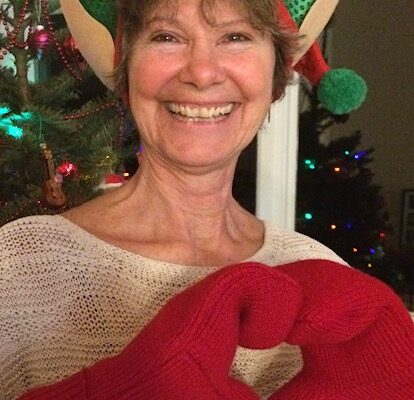
To have negative traits is not to be flawed, but to be complete. – Deepak Chopra
This quote reminds us that expressing our authenticity means to embrace all of our ambiguity as human beings. How many times have we pledged to be kind, stay calm, or get up early and do our practice and then lashed out, stressed out or slept in the very next day? Being authentic, not perfect, is a quality of self acceptance, of being comfortable in our own skin and often, needing to find the humor when we fall short of self imposed rules and regulations. Authentic joy fills the space of our inner witness when we are neither attached to our perceived good qualities or repelled by the “bad” ones. This is often followed by a big belly laugh of recognition of our wholeness.
Although I’ve had many “enlightenment tests” of my own over the years, one that came to me recently in a written essay from a student brought a great big belly laugh of recognition. The assignment was to write about one’s understanding of a selected yoga sutra from its final and most flabbergasting book, number 4. They were asked to contemplate its meaning and feeling; what it invokes in them. This student chose Sutra IV.4 which, in one translation, reads, “Only the ego-sense can create minds.”
She wrote, in part:
I have created minds that I thought were superior to my other minds; like the mind that I am somehow “special” because I do yoga, teach yoga, meditate, etc. I have sometimes identified with a new-age prototype mind that I have perceived as desirable. However, sometimes that new-age mind has proven to be just that, another ego-created construct, when it was tested. An example of this happened one day when I was riding my bike home from work.
I was reflecting on how spiritual I am because I am teaching yoga and riding my bike to and from work. I was feeling a sense of self-satisfaction that I described as bliss. Just then, as if on cue, a group of “gurus” drove by me in a car. This was a little red car with several teenage boys in it; as they drove past a couple of them leaned out the window and dropped the F-Bomb loudly, leaning over to wave their middle fingers at me and honking. Their car was moving in the direction of oncoming traffic, so I could tell that they were directing their enthusiasm at me because we made eye contact.
In an unconscious instant as I felt a surge of anger I yelled their greeting right back at them and flipped them off too. Once my anger calmed I laughed at myself and the absurdity of the situation; I laughed at these boys flipping me, a woman old enough to be their mother or grandmother, off because (I assume) they did not like the fact that I was riding a bike. I laughed at my own response which so quickly matched their drama.
And I laughed at my sense of smug spiritual superiority just moments earlier. It was then I thought the universe sent me an instant pop quiz; and I realized I have more studying to do. I had simply replaced one ego-formed mind by another I judged to be as better.
In my view, the fact that her recovery time was so short and that humor was the immediate next response shows much progress and enlightenment in dealing with the human condition. In Light On Life, p. 165, BKS Iyengar’s last book, he says, “Humor helps people move away from fragmentation to wholeness, too. It lightens the mind and makes it easier to guide and focus.”
As spring brings light into our outer world, let humor and self acceptance bring light into our inner world as well. It will surely shine out and lighten our lives and those whose lives we touch.


